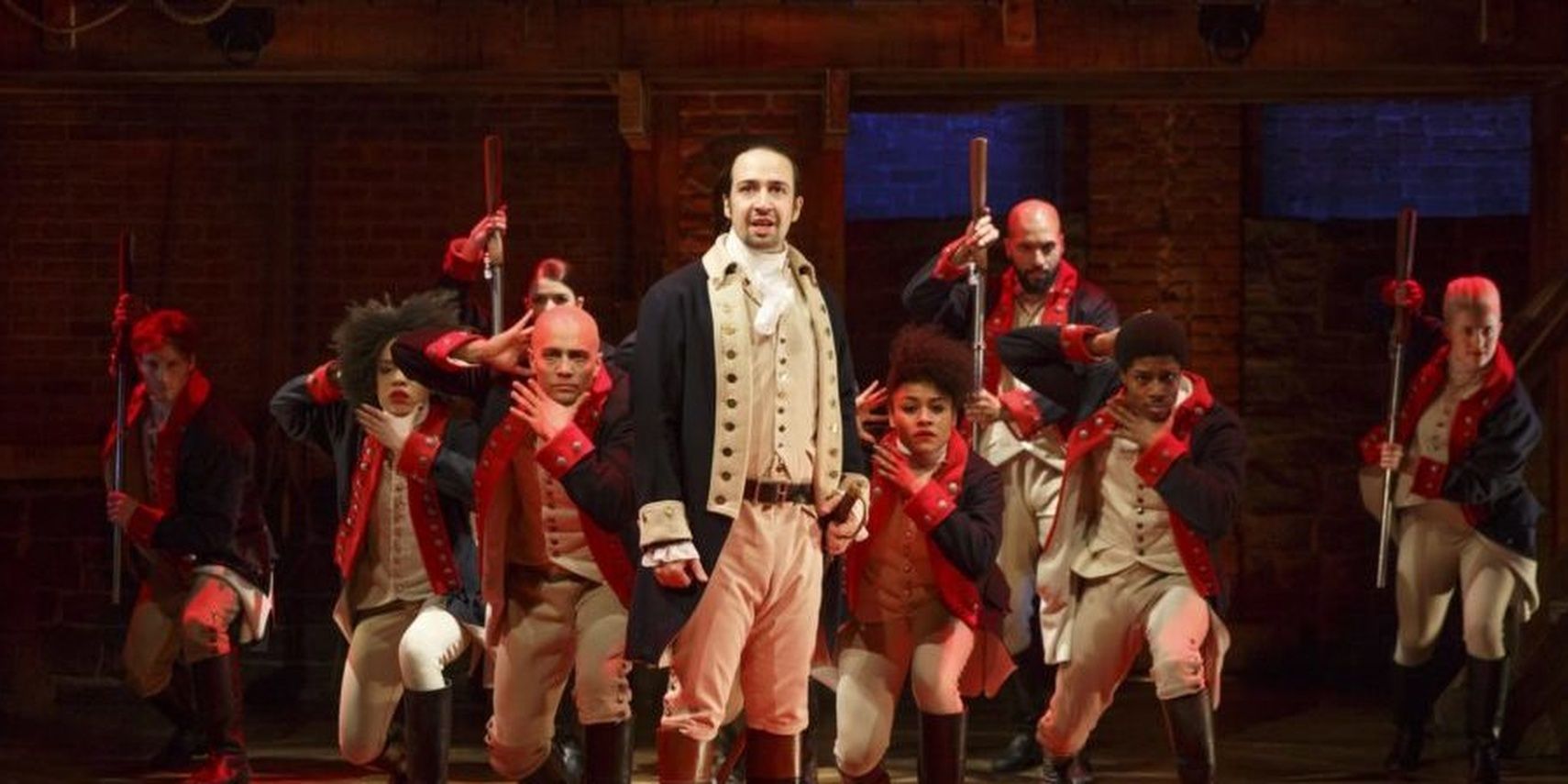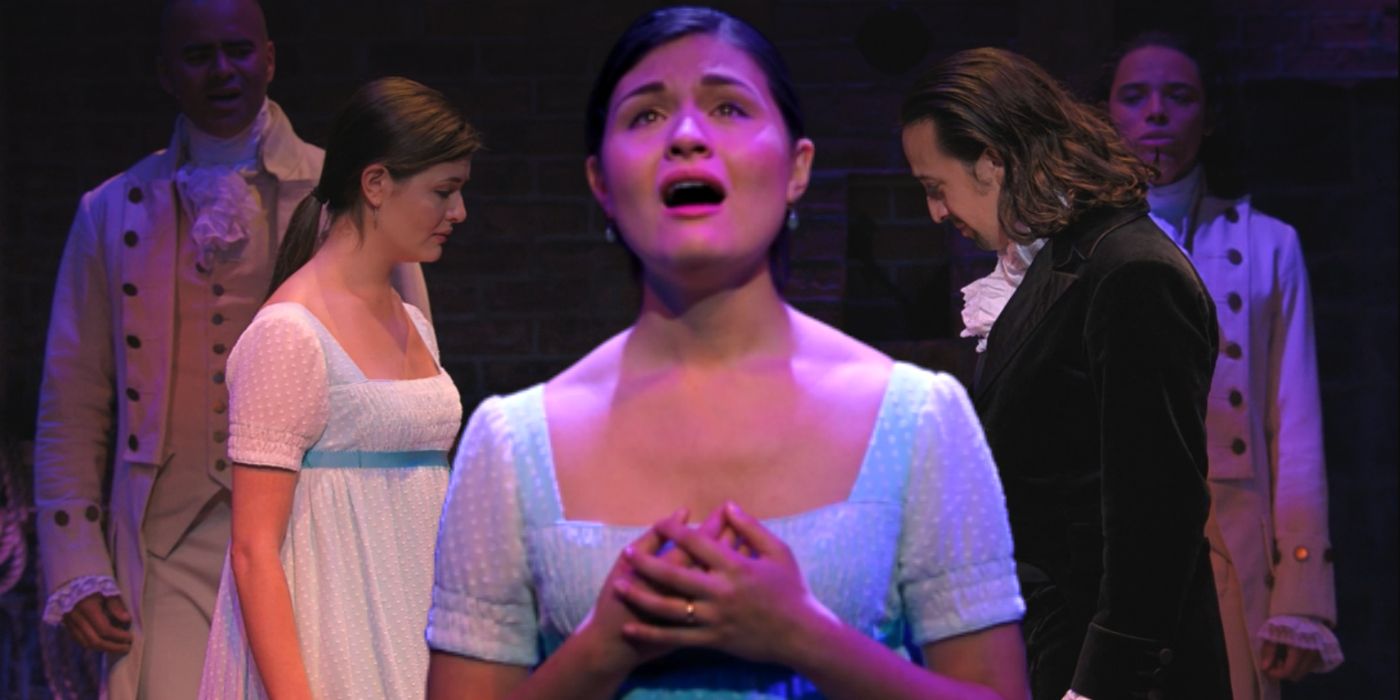Here's why Hamilton's incredible cast is mostly people of color. The musical's meteoric rise to the top has been only been helped by the gifted actors, singers, and dancers who brought its characters to life. Given the hit musical's many preoccupations with ideas surrounding legacy and American events that somehow failed to make it into history textbooks, the creators' commitment to diversity adds to the piece's relevance and resonance.
America's tendencies for historical omission are alluded to very early into Hamilton's runtime. In the show's opening number, "Alexander Hamilton," narrator Aaron Burr speaks of the titular hero, claiming, "His enemies destroyed his rep, America forgot him." And, indeed, as Founding Fathers go, Hamilton has not had the recognition of many of his colleagues. The show goes to great lengths to establish Hamilton as something of an underdog, identifying him upfront as a bastard, orphan, and immigrant - in other words, a man with a steeper hill to climb than most of his contemporaries. This characterization serves as a metaphor for large demographics of Americans so often excluded from the country's larger narrative, many of whom are people of color. The choice to enlist a mostly non-white cast is satisfyingly provocative, as it paints a picture of a more diverse nation whose history truly belongs to every one of her inhabitants.
While composer and lyricist Lin-Manuel Miranda has been notably quiet when discussing his authorial intent (especially as it pertains to the show's diverse representation), casting director Bernie Telsey has some things to say in regards to color-conscious casting. In an interview with IndieWire, Telsey defines the term, saying, “It was created with the idea that anyone can do anything, and we should be open to that. But now it’s much more about consciously making a choice to do something, being seen for the color you are. ‘Hamilton’ does that.” In other words, leaning into diversity has the power to recontextualize that stories are able to tell and celebrate the overlap between the show's world and the realities that exist beyond it.
And "being seen" is crucial to Hamilton's overall message, figuring into many of the show's most memorable moments. The protagonist fights to be legitimized throughout the piece, first looking to be accepted by the Sons of Liberty, then as Hamilton looks for a place in George Washington's service, and finally succumbing to the weight of history, which essentially forgets or skims over his incredibly influential life. However, it is the musical's focus on its supporting characters - mainly women - and the legacies which they often fail to leave behind that are particularly evocative, especially as their experiences and contributions during the birth of the United States are also rarely accounted for in most history lessons.
Yet, in Hamilton's final number "Who Lives, Who Dies, Who Tells Your Story," the show turns its attention from Hamilton to his wife Eliza, who "puts herself back in the narrative" as the actor playing her begins enumerating the figure's many accomplishments after her husband's death, at last taking ownership of her story and contributions to a country that largely forgot her. The same can be said for legions of black and brown people - physically represented by Hamilton's diverse cast - who live in America but whose point of view has historically been pushed to the side. Just as Eliza arrives to assert her many forgotten contributions, so too does the show's cast, many of whose ancestors were given no credit for their part in building the United States. Their stories are just as valuable - if not more so - as Hamilton's, and necessary in gaining a fuller picture of the country in which we all live.
Juxtaposing period-specific costumes and historically white figures with contemporary music and a cast consisting mostly black and brown actors helps to establish Hamilton's America as a place where all are welcome to celebrate her history. But that history runs deep and far beyond Hamilton and his fellow Founding Fathers and it is time to hear these long-ignored voices in order to finally achieve the "promise of the nation we now get to build." A Revolutionary Musical, indeed.


